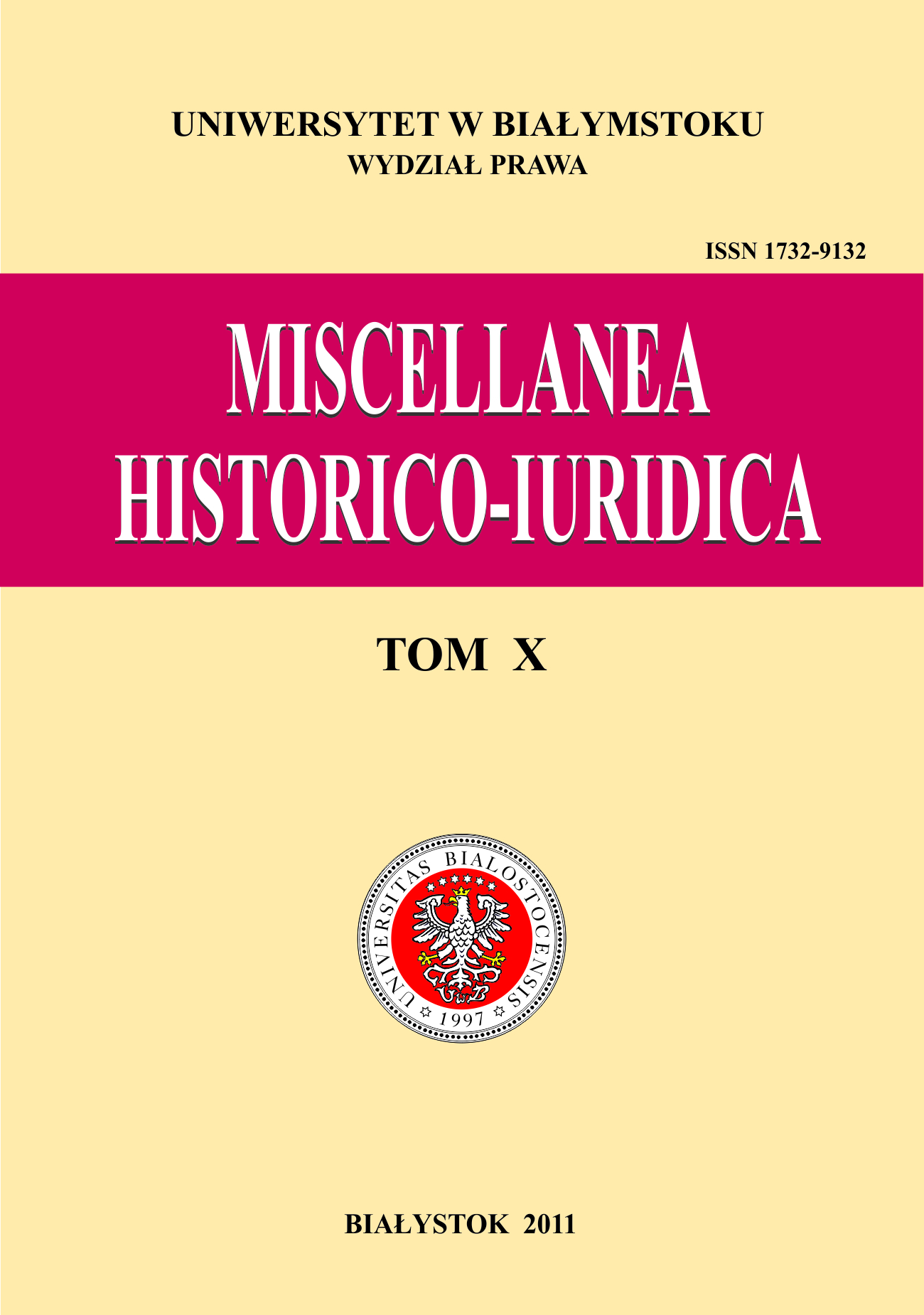Początki prac nad kodyfikacją prawa karno-administracyjnego Polski Ludowej
Keywords:
petty offenses law, codificationAbstract
The act of 15 Dec. 1951 on petty offenses jurisdiction has introduced the socialist model into this branch of law. It was based on so called socialization and democratization of jurisdiction. The cases were decided by collective organs and the decisions were supposed to have an educational character. The punishment of arrest was abolished and two new punishments were introduced: so called corrective labor and admonition. The act regulated the procedure in only petty offenses cases, because petty offenses were regulated by acts dating from the pre-war period. The state of legal uncertainty and the superficial character of the 1951 act led to many unlawful decisions being taken by the boards judging petty offenses. The members of these boards usually had no legal education. This state was criticized and in 1955 the Ministry of Internal Affairs began working on a new codification of the petty offenses law. The first draft was ready in 1956, when major political changes were taking place. It consisted of two parts: the first one regulated the petty offenses law, the second one regulated procedural norms. The draft was satisfactory. It was based on the principle of the educational role of law. The monetary penalties were moderate. The liberal character of the draft caused the its rejection in 1957. Władysław Gomułka, the leader of the communist party, insisted on imposing severe repression against hooligans. That is why the amendment of the 1951 act, passed in 1958, was much more repressive.







